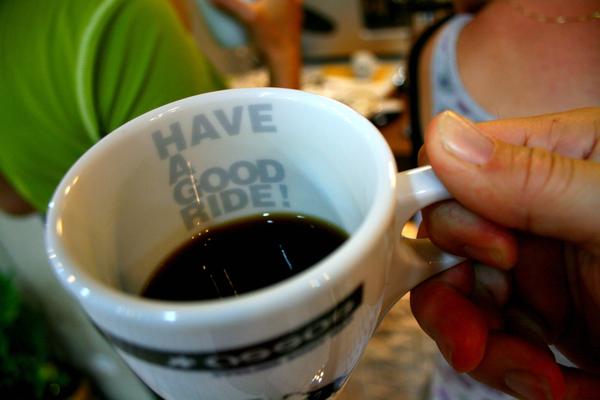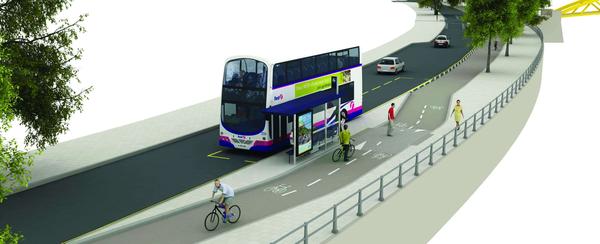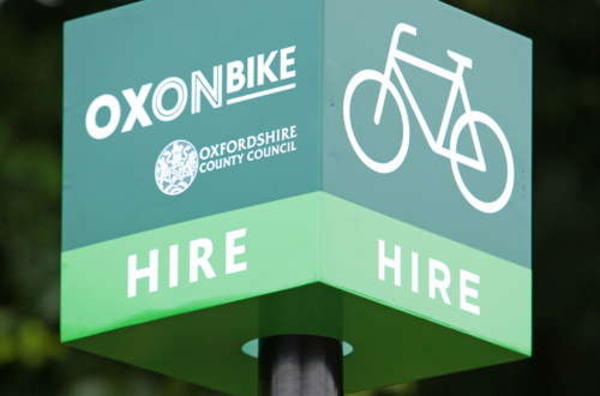
Become a supporter

There’s no shortage of cycling challenges on the web, usually tied up with fitness – cycle every day for a year, beat your ‘personal best’, ride 50k, 100k, 200k. But here at cycle.travel, we think we’ve finally found one that appeals to us: coffeeneuring.
The rather uncomfortable portmanteau word is a nod to ‘randonneur’, the long-distance amateur cycle sport. The idea is simple: in seven consecutive weekends, you must ride your bike to seven different coffee shops, and have a coffee.
That’s it.
The idea was hatched in the famously coffee-centric city of Seattle by local cyclist Joe Platzner, of Seattle Randonneurs, and then taken up by Mary Gersemalina from Washington DC. Mary added 19 rules to the challenge, saying:
“I invented Coffeeneuring and built a rather long set of rules around it, in part because randonneuring is a sport with many rules and because there is such irony in creating rules around a simple activity like riding your bicycle to a cup of coffee. On closer examination the rules basically boil down to ‘ride your bike at least two miles to a cup of coffee and take a picture.’ ”
But if you do want to follow the rules as written, they’re not too onerous: weekends only, minimum two miles, maximum one coffee shop per day, and take a photo. Hot chocolate, tea, and “apple cider” all count, though sadly the latter is simply US English for plain apple juice. Check out the full rules at chasingmailboxes.com.
The US 2013 Coffeeneuring Challenge ran in October and November, with 125 cyclists taking part – many of them recording their rides on Twitter with the hashtag #coffeeneuring. Only one of the participants was from Britain, but since cycling to a tea room is such a long-established British tradition, we can see this taking off over here.
Should you need inspiration for your rides, you can of course use our journey-planner and city guides to plan a route. We would also heartily recommend patisseriecyclisme.com, an entertaining directory of cycle-friendly cafés around Britain.

Cambridge is finally becoming a 20mph city, almost five years after Oxford took the plunge.
Signs are going up this week on residential roads in north Cambridge and Chesterton, including busy through roads such as Arbury Road and Chesterton High Street. The limit will come into force in early April.
Then, if a public consultation agrees, the limit will be extended this summer to the Abbey, Coleridge, Romsey and Petersfield wards in east Cambridge. The consultation is open until the end of March.
The Cambridge Cycling Campaign has come out in support of the lower speed limit, saying: “Such limits make streets far more pleasant for those who live on them, enabling many more people, especially the young and old to move around on foot or on bike in confidence. Widespread introduction of such limits in other cities has proved popular to all but a very small minority.”
However, that very small minority inevitably includes UKIP’s local chairman, the notoriously anti-cyclist Peter Burkinshaw. He told the Cambridge News: “The only people who support it are people who ride bikes and don’t have cars so I think it’s a waste of money. 30mph is low enough anyway.”

While London’s mayor Boris Johnson dithers, Bristol’s mayor is pressing ahead with the construction of a new ‘Dutch-style’ cycleway in Bristol.
George Ferguson, Mayor of Bristol and a founder of Sustrans, says that the Clarence Road track will be the first of many. “This scheme is exactly what we are going to see more of in Bristol as cycling and walking routes are improved so that anyone aged eight to 80 can feel that they have an option to travel in this way.”
Work starts next Monday (10 March) on the 700-metre long track, which follows the River Avon in Redcliffe. It will form the first part of the Avon Promenade, a continuous, traffic-free, waterside route from Keynsham to Hotwells.
Among the features are specially designed ‘Toby’ bollards to segregate the 3m-wide two-way track. Parking meters will be removed and a pedestrian crossing replaced to make way for the route.
George Ferguson explained the inspiration behind it. “I’ve seen this sort of cycle track used successfully in the Netherlands and in Copenhagen, this year’s European Green Capital and separation really works where roads are busy and we can find the room.”
Work is anticipated to be finished by the summer. Further work to improve the junctions at either end will continue over the next few years.

The Western Flyer, perhaps the most popular traffic-free cycle route in Swindon, is receiving a much-needed upgrade.
The route links West Swindon to the railway station, starting at the busy subway underneath the main line. The council-run Swindon Travel Choices project identified it as their top priority route for its potential to lure commuters out of their cars.
New signs are designed to announce the route to passing motorists as well as guiding cyclists. Extensive physical works are also underway. New lighting has been installed between the Mead Way subway and Barnfield, the surface has been reconstructed, and kerbs have been moved to provide a wider route. During February, the route behind the Westmead Industrial Estate was extensively resurfaced.
The Western Flyer will be formally launched this month, with an accompanying smartphone app to highlight the history and environs of the route.

Oxford’s own Boris bikes are set to return to the streets now a new operator has been found for the scheme.
The original operators, Grand Scheme, went into liquidation in November. Now, Oxfordshire County Council has signed up HourBike to relaunch Oxonbike in April. They already run similar bike-hire systems in Blackpool, Reading and Dumfries.
David Nimmo Smith, OCC’s Cabinet member for transport, said: “More than 500 people signed up to OXONBIKE last year and we are certain that they will get back in the saddle from April.”
For now, the scheme continues to operate in the Headington area only. The first 30 minutes’ hire are free. One change is that keypads will be used to unlock a bike, as in London.
Oxonbike is funded by central Government until March 2015.
Log in with your cycle.travel account:
| Password |
Or simply use your account on: